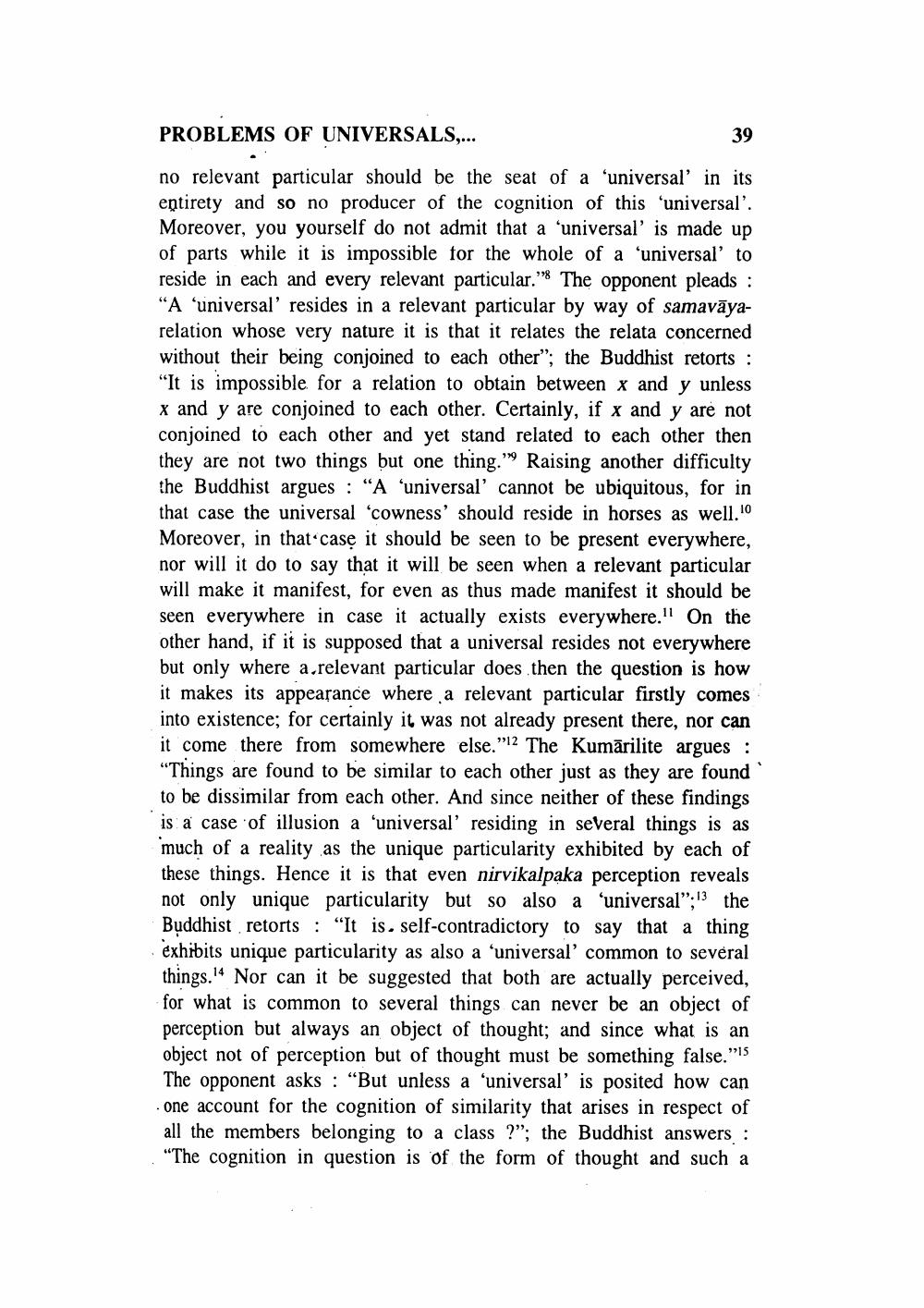________________
PROBLEMS OF UNIVERSALS,...
39
no relevant particular should be the seat of a 'universal' in its entirety and so no producer of the cognition of this 'universal'. Moreover, you yourself do not admit that a universal' is made up of parts while it is impossible for the whole of a 'universal' to reside in each and every relevant particular."" The opponent pleads : "A universal' resides in a relevant particular by way of samavāyarelation whose very nature it is that it relates the relata concerned without their being conjoined to each other"; the Buddhist retorts : "It is impossible for a relation to obtain between x and y unless x and y are conjoined to each other. Certainly, if x and y are not conjoined to each other and yet stand related to each other then they are not two things but one thing." Raising another difficulty the Buddhist argues : "A universal' cannot be ubiquitous, for in that case the universal 'cowness' should reside in horses as well. 0 Moreover, in that case it should be seen to be present everywhere, nor will it do to say that it will be seen when a relevant particular will make it manifest, for even as thus made manifest it should be seen everywhere in case it actually exists everywhere." On the other hand, if it is supposed that a universal resides not everywhere but only where a relevant particular does then the question is how it makes its appearance where a relevant particular firstly comes into existence; for certainly it was not already present there, nor can it come there from somewhere else."12 The Kumārilite argues : "Things are found to be similar to each other just as they are found to be dissimilar from each other. And since neither of these findings is a case of illusion a universal' residing in several things is as much of a reality as the unique particularity exhibited by each of these things. Hence it is that even nirvikalpaka perception reveals not only unique particularity but so also a universal";13 the Bụddhist retorts: “It is, self-contradictory to say that a thing exhibits unique particularity as also a ‘universal' common to several things.14 Nor can it be suggested that both are actually perceived, for what is common to several things can never be an object of perception but always an object of thought; and since what is an object not of perception but of thought must be something false." The opponent asks : “But unless a 'universal' is posited how can one account for the cognition of similarity that arises in respect of all the members belonging to a class ?"; the Buddhist answers : "The cognition in question is of the form of thought and such a




